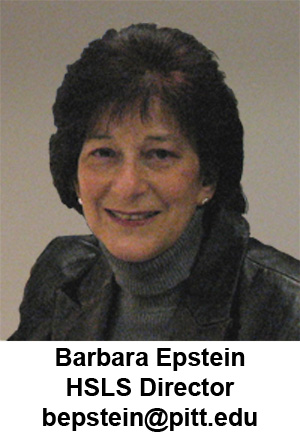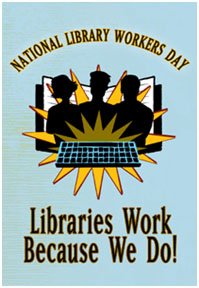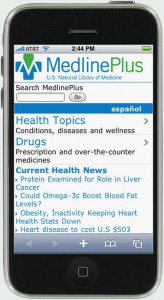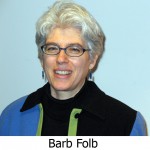If you use PubMed, don’t forget to set up a My NCBI account to retain your customized information and preferences.
Here are seven advantages to having a My NCBI account:
- Store and save your PubMed and Entrez database searches, and update them to see new PubMed references or database content whenever you want.
- Create topical collections of your selected PubMed references and share them with your colleagues.
- Pick your favorite highlighting color in My NCBI preferences. You’ll be able to find your search terms without difficulty since they will be highlighted in retrieved PubMed references.
- When connecting to PubMed via Pitt’s secure remote access or Connect@UPMC, set your Outside Tool to “University of Pittsburgh Health Sciences Libraries” to easily link to HSLS full-text journal articles.
- Use the My NCBI filter option to easily identify references from your PubMed search that are systematic reviews, clinical trials, RCTs; or are about infants or the elderly; or are in the domain of bioethics, AIDS or cancer. There are many PubMed filter options that may be just right for your own discipline.
- Use My NCBI’s recent activity feature to view searches you did up to 6 months ago when using your My NCBI account.
- Save your “authored” references (journal articles, books, meetings, patents and presentations) in My Bibliography and manage peer review article compliance with the NIH Public Access Policy.
And for all those writing grants and articles:
For help with PubMed and My NCBI, please call the Main Desk at 412-648-8866 or Ask-A-Librarian .
Technical considerations when using My NCBI:
- To use My NCBI, your Web browser must accept cookies and allow pop-ups from NCBI Web pages.
- For My NCBI to work via Pitt’s secure remote access server you need to do the following:
In Internet Explorer:
1. Select Tools.
2. Select Internet Options.
3. Select the Security tab.
4. Click on Trusted sites.
5. Click on the Sites button.
6. Add under trusted sites the two URLS:
https://sremote.pitt.edu
https://www.ncbi.nlm.nih.gov
- For technical assistance accessing My NCBI through Pitt’s secure remote access server, call Pitt’s Technology Help Desk at 412-624-HELP.
- For technical assistance accessing My NCBI through Connect@UPMC.com, call UPMC’s ISD Help Desk at 412-647-HELP.
To learn more:
- My NCBI quick tours from the National Library of Medicine.
- My NCBI help.
- Hutcherson L. My NCBI: Managing compliance with the NIH Public Access Policy using My Bibliography. 372(Jan-Feb 2010):e8.
- Nahin AM. Recent activity extended with My NCBI . NLM Technical Bulletin. 369(Jul-Aug 2009):e1.
- Nahin AM. Share your PubMed collection and customize filters with My NCBI. NLM Technical Bulletin. 368(May-June 2009):e12.
~ Charles Wessel

 The American Library Association has declared April 13, 2010 as National Library Workers Day so we can recognize the valuable contributions of our many employees who—together with faculty librarians—maintain our services and resources. HSLS has staff in all departments, some of whom deal directly with our users and others who work behind the scenes.
The American Library Association has declared April 13, 2010 as National Library Workers Day so we can recognize the valuable contributions of our many employees who—together with faculty librarians—maintain our services and resources. HSLS has staff in all departments, some of whom deal directly with our users and others who work behind the scenes.

 In 1999, Barb Folb began her HSLS career as a reference/outreach librarian at Western Psychiatric Institute & Clinic (WPIC). Four years later, she was appointed public health librarian/liaison to the Graduate School of Public Health (GSPH). In that position, she provided reference services and library instruction to faculty, staff, and students.
In 1999, Barb Folb began her HSLS career as a reference/outreach librarian at Western Psychiatric Institute & Clinic (WPIC). Four years later, she was appointed public health librarian/liaison to the Graduate School of Public Health (GSPH). In that position, she provided reference services and library instruction to faculty, staff, and students.